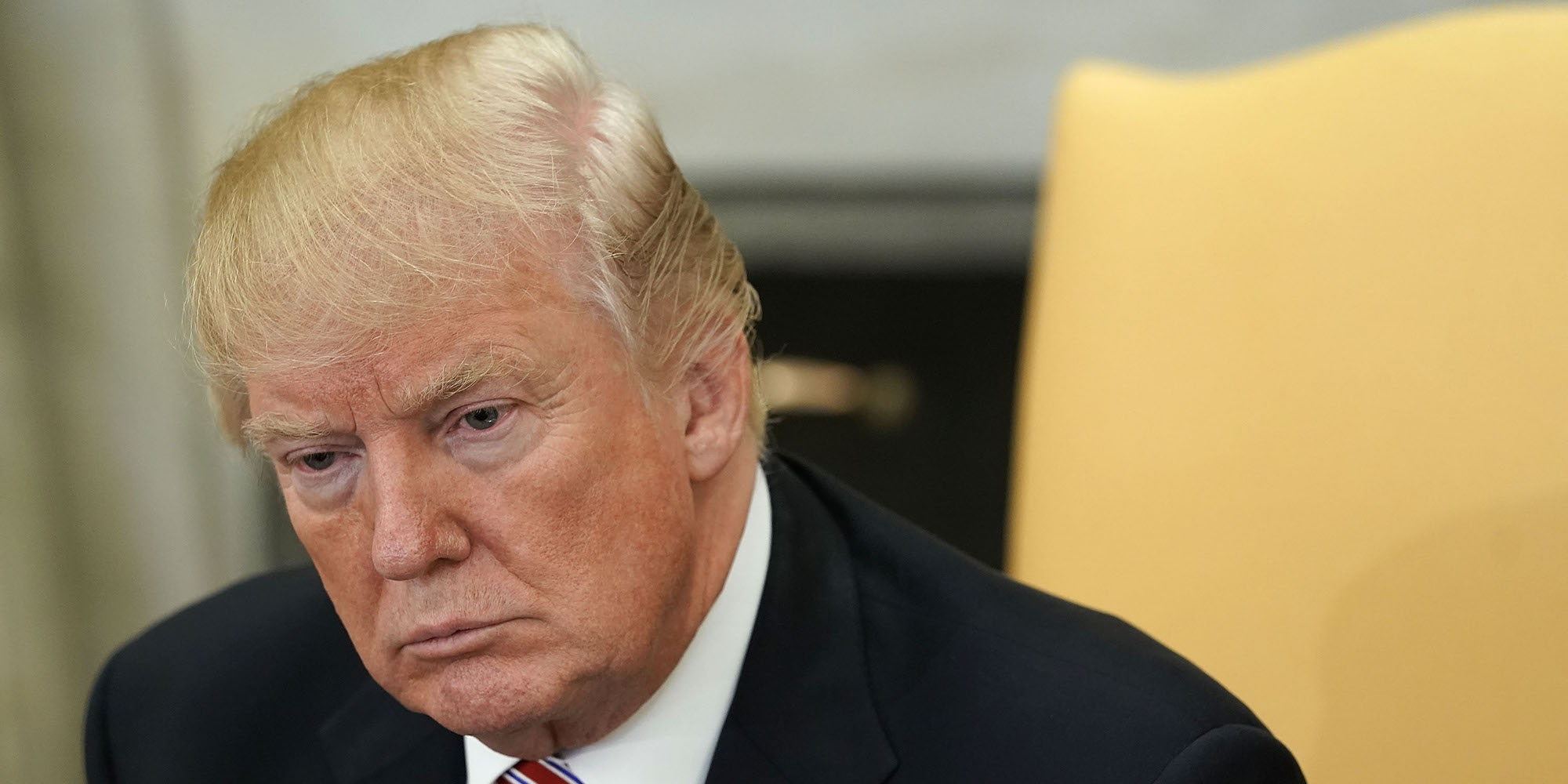- President Donald Trump reportedly told advisers he wanted to oust the special counsel Robert Mueller in December.
- It is the second reported instance in which Trump attempted to have Mueller removed.
- It also surfaced Tuesday that Trump is weighing firing deputy attorney general Rod Rosenstein, following reports that Rosenstein signed off on a search warrant targeting Trump’s longtime personal lawyer, Michael Cohen.
After reports surfaced in December that the special counsel Robert Mueller had subpoenaed Deutsche Bank seeking records related to the Trump family’s business dealings, Trump said he wanted the Russia investigation to be shut down, The New York Times reported.
Trump apparently believed the reports indicated Mueller had crossed the “red line” Trump said Mueller would breach if he investigated Trump’s or his family’s personal finances.
However, when Trump’s lawyers reached out to Mueller’s office to ask about the reports of the Deutsche Bank subpoenas, Mueller’s office said they were inaccurate, and Trump subsequently backed off.
The alleged sequence of events represents the second known instance in which the president has sought to oust the special counsel investigating him and his associates.
Earlier this year, The Times reported that Trump ordered the White House counsel, Don McGahn, to fire Mueller and only backed off when McGahn threatened to resign.
Reports of the Deutsche Bank subpoenas came shortly after Trump's former national security adviser, Michael Flynn, pleaded guilty in the Russia investigation and began cooperating with the FBI. After news of Flynn's guilty plea emerged, Trump publicly defended him, saying his indictment was a "shame because his actions during the transition were lawful."
He added: "There was nothing to hide!"
Trump's reported push to fire Mueller upon learning of the reported Deutsche Bank subpoenas will add another piece to the puzzle as Mueller investigates Trump's intent and whether he sought to obstruct justice at various points in the Russia probe.
The obstruction-of-justice thread stems primarily from Trump's decision to fire FBI director James Comey last year. Following Comey's dismissal, deputy attorney general Rod Rosenstein appointed Mueller the special counsel in charge of overseeing the Russia investigation.
Since then, Trump has publicly and privately railed against Rosenstein, Comey, Mueller, former FBI deputy director Andrew McCabe, and attorney general Jeff Sessions, who recused himself from the Russia investigation last year.
Meanwhile, on Tuesday, CNN reported that Trump is now weighing firing Rosenstein amid reports that he signed off on a warrant targeting Trump's longtime personal lawyer, Michael Cohen.
On Monday, investigators working with the US Attorney's office for the Southern District of New York raided Cohen's home, office, and hotel room in an early morning raid and seized Cohen's electronic devices, personal financial documents, and attorney-client communications between him and Trump.
'Sooner or later, everyone will know what Bob Mueller knows'

Legal experts did not mince words when discussing the enormity of the Cohen raids.
"This just got personal for Trump," said Jeffrey Cramer, a former federal prosecutor who spent 12 years at the Department of Justice. "It hits close to home, and he's scared."
Cohen, whose primary and highest-profile client is the president, left the Trump Organization early last year and has been a personal attorney to Trump since then.
But his relationship with Trump spans years - he has long been known as one of Trump's closest allies, and Cohen's intimate knowledge of Trump's finances was most likely the tipping point that fueled Trump's rage.
"This search warrant is like dropping a bomb on Trump's front porch," Joyce White Vance, a former federal prosecutor from Alabama, told The Washington Post.
"You can't get much worse than this, other than arresting someone's wife or putting pressure on a family member," Mark Zaid, a Washington attorney, told The Post. "This strikes at the inner sanctum: your lawyer, your CPA, your barber, your therapist, your bartender. All the people who would know the worst about you."
Cramer said Tuesday that Trump's anger was not surprising given the potentially significant implications of the Cohen raids.
While he may not be able to shut down the investigation into Cohen, Trump could theoretically pardon anyone convicted of a federal crime. Meanwhile, if Rosenstein is unwilling to fire Mueller, Trump has the constitutional authority to fire Rosenstein and nominate a deputy attorney general who would be willing to carry out an order to dismiss Mueller.
Trump could also take the extraordinary step of firing Mueller directly by ordering a repeal of the special-counsel regulations adopted in 1999, according to Neal Katyal, the former acting solicitor general, who drafted the guidelines.
But even if he were to do all those things, Cramer said, "the New York attorney general is going to pick up this trail, and that's where the president has absolutely no authority, because he can't pardon state crimes."
"One way or another, the truth is going to get out," he added. "It may be in an indictment; it may be in a report. But sooner or later, everyone will know what Bob Mueller knows."

